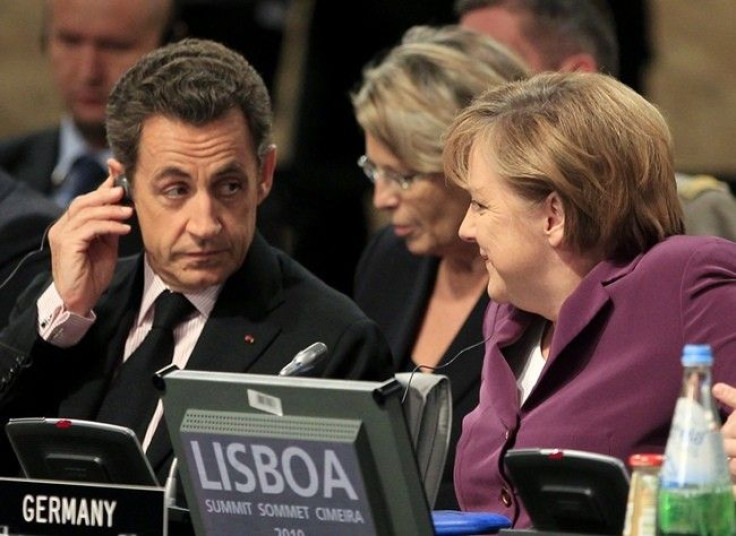Germany finds ally in France for 2013 bailout rule

Germany's argument for a policy to make private investors pick up part of the bill for any future bailouts won support from France as more European countries seem to require financial aid.
Private investors would share some risk from future bailouts starting 2013, German Chancellor Angela Merkel said.
Ireland is being awarded a bailout package by the European Union and the International Monetary Fund. The Irish government has drafted an austerity plan like Greece, which was also given a bailout package earlier this year. Economists expect Spain and Portugal to also require financial aid in the coming months.
Given the vast quantities of bailout, France moved closer to Germany's position on Thursday, as Merkel and French President Nicolas Sarkozy discussed the matter on phone, the New York Times reported.
The two governments will set up a new mechanism to deal with sovereign debt crisis that would take effect in 2013, the paper said.
However, not all European policymakers are convinced about the plan. French economy minister Christine Lagarde said that such a plan required scrutiny on a case-by-case basis rather than have rules ahead of time.
The announcement regarding the plan has also caused much concern among investors. The EU must come up with rules and regulations by December about how to include private investors in any future bailouts as proposed.
However, there has been no indication about how the current debt will be dealt with, particularly if a country requires more assistance by 2013.
Germany has seen one of the more stable economies in the Eurozone during the economic crisis. The country is also recovering faster than most other European nations, with better job growth and lower unemployment numbers.
© Copyright IBTimes 2024. All rights reserved.











